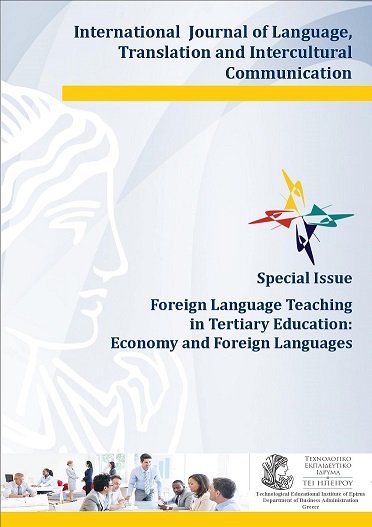Business English and Business French:a comparative analysis of teaching strategies and firms' needs.

Abstract
Following T. Dudley-Evans’ suggestions, in order to analyse languages for specific purposes, it is possible to argue that present teaching experience is characterized by certain common aspects, such as teachers’ insufficient extra-linguistic knowledge; lack of adequate teaching materials; learners’ different levels of linguistic competence and lack of motivation. Futhermore, Business Languages imply an additional aspect to be investigated, a sort of ‘side effect’: rapid changes in the market determine a necessity, that of naming new features and conditions, hence the question of word-formation and transparency arises. Moving from an analysis of language curricula at the University of Catania, Department of Business Economics, this paper will seek to explore adopted teaching methods in order to point out the importance of integrating language and content, as stated by Fortanet-Gómez and Räisänen. The study’s diachronic and synchronic evaluation of the applied approaches will lead to suggestions in the design of modules, taking into account the role played by both Business English and Business French, in terms of teaching implications and job opportunities. The main aim is to provide a potential answer to the following question: To what extent are companies aware of the need to invest in languages, intercultural and interpreting skills, and the management of linguistic diversity?
Article Details
- How to Cite
-
BENZO, V., & DI GREGORIO, G. (2016). Business English and Business French:a comparative analysis of teaching strategies and firms’ needs. International Journal of Language, Translation and Intercultural Communication, 4(1), 78–88. https://doi.org/10.12681/ijltic.10340
- Section
- Articles

This work is licensed under a Creative Commons Attribution-NonCommercial-ShareAlike 4.0 International License.
Copyright Notice
Authors who publish with this journal agree to the following terms:
- Authors retain copyright and grant the journal right of first publication with the work simultaneously licensed under a Creative Commons Attribution License that allows others to share the work with an acknowledgement of the work's authorship and initial publication in this journal.
- Authors are able to enter into separate, additional contractual arrangements for the non-exclusive distribution of the journal's published version of the work (e.g., post it to an institutional repository or publish it in a book), with an acknowledgement of its initial publication in this journal.
- Authors are permitted and encouraged to post their work online (e.g., in institutional repositories or on their website) prior to and during the submission process, as it can lead to productive exchanges, as well as earlier and greater citation of published work (See The Effect of Open Access).


